by Tom Konrad, Ph.D., CFA
Last week, two of the stocks in my Ten Clean Energy Stocks model portfolio cut their dividends. Covanta Holding Corp (CVA) dropped its quarterly payout from $0.25 to $0.08 (a 68% cut) while Green Plains Partners (GPP) slashed its quarterly distribution from $0.475 to $0.12, a drop of 74.75%.
Before reducing their dividends, both companies had payout ratios near 100%, meaning that substantially all of their free cash flow was going to pay dividends. In general, companies are very reluctant to cut their dividends because it is a signal that their management thinks they cannot grow without retaining more cash, and it typically sends the stock price tumbling.
I initially included both in the model portfolio because I believed that there were unlikely to be any near term factors that would force either to cut its dividend. For Green Plains, I felt that a possible recovery of the ethanol market would lead to substantial capital gains, and that the then 14.3% dividend yield was sufficient compensation for the risk if the ethanol market remained in its then miserable state. For Covanta, I saw a company with solid growth plans which would likely allow it to increase its cash flow in 2 to 3 years, after which it could start paying down its substantial debt load without having to cut its dividend.
The Coronavirus pandemic changed this calculation: all companies are experiencing business disruption, and dividend cuts for both became priced in when their stock prices fell more than 50%. Investors’ no longer were concerned that these companies might not be able to maintain their dividends: they knew dividend cuts were coming as a near certainty.
Note: My supporters on Patreon got an early look at this article. Want to support my work and get previews of my writing? Join them here.
Differences
While the parallels are obvious, a deeper dive reveals significant contrasts. Ethanol is a direct competitor for gasoline, so the large drop changed what had already been some of the toughest ethanol market conditions in years into one where even the most efficient producers lose money on every gallon of ethanol they sell. With ethanol producers shutting down refineries, GPP’s transportation and storage facilities are also seeing less business.
Covanta

In contrast, energy from waste firm Covanta’s revenues are much more stable. Approximately three quarters of Covanta’s revenue comes from tip fees- the money the company is paid by haulers to accept trash. Of the remaining, most is revenue from electricity sales, plus small slice from the sale of metals recovered from the ash left after incineration.
The majority of Covanta’s trash is residential. At least in my New York town, the the stay at home order has led to higher residential trash volumes being taken to the transfer station. Apparently, now that people are spending more time at home, they are taking the opportunity to declutter. This trend may also be a boon to another recent stock pick, Ebay (EBAY). If this local increase in trash volume is indicative of the general trend across the Northeast (where the majority of Covanta’s plants are located), the tipping fee portion of its revenues are likely safe. The company’s medical waste disposal business even offers some potential for upside out of the crisis
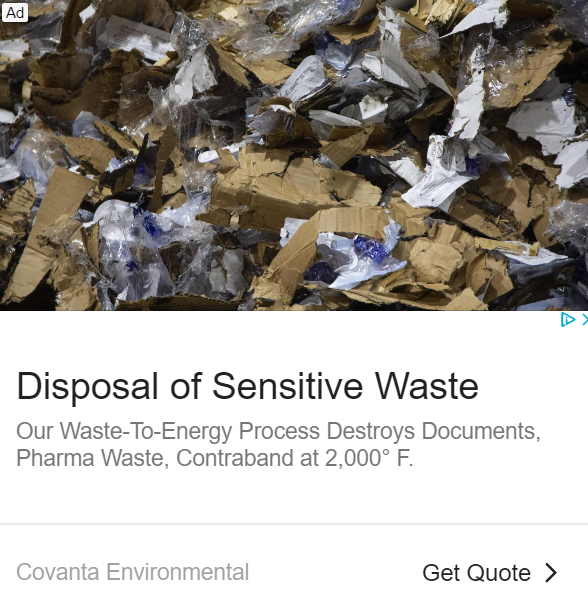
While the quarter of Covanta’s revenue which comes from energy and recycling is likely to fall in the short term, the majority of its revenue seems safe. If the government decides to do an infrastructure program to stimulate the economy as the crisis abates, that should lead to a recovery of the prices Covanta is able to get for its recycled metals.
Green Plains Partners
The Green Plains Partners also can expect its revenues to remain relatively stable despite the miserable state of the ethanol industry. This is because GPP enjoys take-or-pay arrangements with its parent, Green Plains (GPRE). As long as GPRE remains solvent, Green Plains Partners’ revenue should remain relatively stable.
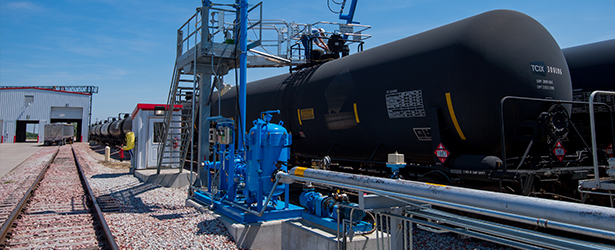
With ethanol producers operating at negative margins, and rapidly taking ethanol facilities offline, it would not do to take GPRE’s solvency for granted. However, the company is relatively well capitalized and has also been taking steps to improve its capital resources.
Green Plains, Inc. suspended its own dividend in mid 2019. In a presentation to investors on March 4th, the company summarized its efforts to improve its balance sheet. It realized approximately $780 million in proceeds from asset sales between October 2018 and December 2019. It used these sales to reduce or deconsolidate debt by nearly $1 billion, and had $270 million in cash on hand.
Other than Green Plains Partners’ revolving credit facility, Green Plains, Inc, does not have significant debt maturing before 2022. Green Plains Partners needs to replace its revolving credit facility before it matures on July 1st. Under normal circumstances, I would not be concerned about the prospects of replacing the facility, but this year is not what anyone would consider normal circumstances.
The April 16th press release which announced the dividend cut also quoted Todd Becker, president and chief executive officer of Green Plains Partners: “We believe this decision by our board of directors will strengthen our balance sheet for the benefit of all stakeholders and create long term value for our unit holders. We are currently working with our existing lender group to extend our credit line which will likely include a change to overall commitment levels and pricing, as well as require principal amortization as part of the transaction. Our goal is to pay off the debt within the next 18 months through this distribution reduction and other actions.”
I take this quote to mean that GPP has made significant progress in its negotiations with lenders, and that the dividend cut is part of what was needed to get the lenders to agree to extend credit.
Given all these factors, it is no surprise that GPP cut its dividend. However, both GPP and GPRE seem to be doing what it takes to make it through this crisis. Long term, GPP is likely to come out of this as a stronger company with less debt.
Conclusion
Given the hard times the ethanol industry is experiencing – due both to low price of gasoline (with which it competes) and political favors to oil refiners from the Trump administration, it’s no wonder than Green Plains Partners is trading at about a third of its already-depressed price from the start of the year. I don’t expect the company to recover its losses, but I expect to see significant stock price gains in the near term if the company announces new financing to replace the expiring revolving credit facility.
In contrast, I am at a loss to explain the full extent of Covanta’s recent decline. When a stock declines and I can’t explain it, my usual reaction is to buy. Which is what I am doing.
Disclosure: Long CVA, GPP, GPRE, EBAY.
DISCLAIMER: Past performance is not a guarantee or a reliable indicator of future results. This article contains the current opinions of the author and such opinions are subject to change without notice. This article has been distributed for informational purposes only. Forecasts, estimates, and certain information contained herein should not be considered as investment advice or a recommendation of any particular security, strategy or investment product. Information contained herein has been obtained from sources believed to be reliable, but not guaranteed.

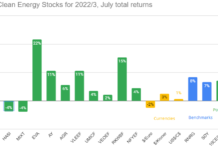


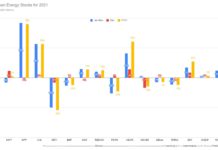
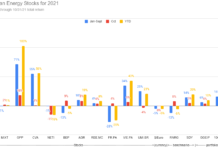


If CVA has spare operational capacity, it seems they might be in a position to handle extra packaging, takeout, medical waste, and diverted recycling due to oil price
https://www.wired.com/story/coronavirus-pandemic-recycling-crisis/
https://www.wastedive.com/news/coronavirus-us-waste-recycling-disruption-tracker/574324/
CVA usually has long term contracts for most of their capacity, but some of these contracts are always rolling over, and increased volumes in the market overall will help them obtain higher priced contract for the ones that roll over.